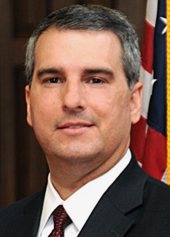The halfway point of 2018 brings new distracted driving restrictions to a quartet of states. The change is most significant in Georgia, which gets its first handheld cell phone ban. The new laws and penalties all took effect July 1.
In Georgia, drivers must employ hands-free devices if they want to continue using smartphones behind the wheel. A long period of study by lawmakers resulted in a statute that focuses on barring the holding or touching of wireless communications devices. Also newly prohibited are recording videos, and watching videos. Georgia already has a texting & driving law. Fines are $50 to $150.
In Arizona, novice drivers under the age of 18 are barred from texting while motoring under a learner’s permit and during the first half year of their licensing. The law is even weaker than it appears, because police will need to witness another offense before pulling over a teen driver. (Arizona has been perhaps the most resistant state to distracted driving regulation — and any law is considered a victory by safety advocates.) Fines: $75 to $100 with license suspensions.
In Oregon, tough new distracted driver penalties came into full effect July 1, with the possibility of jail time for serial offenders. A wholesale rewrite and modernization of the state’s distracted driving laws technically took effect in October, but there was a grace period. Three convictions within a decade brings a Class B misdemeanor with a fine of at least $2,500 and a possible 6 months in jail.
In Virginia, drivers caught texting while passing through a work zone can be hit with a (mandatory) $250 fine.
Safety officials celebrated the changes, which were widely publicized in most of the states:
“Distracted driving is an epidemic in Oregon, and the consequences can be deadly,” said Troy Costales, Transportation Safety Division administrator.
In Georgia, officials hoped the major rewrite to traffic laws would help reduce the state’s alarming increase in highway deaths of recent years.Cell phone use has become “a habit we don’t think twice about since we have been talking on our phones while driving for more than three decades, and it is going to take time for all of us to stop automatically reaching for the phone when it rings,” Robert Hydrick of the Governor’s Office of Highway Safety said.
State Rep. John Carson said the Hands-Free Georgia Act he sponsored may well lead to a “cultural change” about use of wireless communications devices. He said he may seeks revisions to the statute in the next legislative session. The new law’s fines of up to $150 for serial offenders were significantly watered down from almost $1,000, he notes.
Also, safety advocates are alarmed that teen drivers now are treated the same as adult drivers, giving them the right to make hands-free calls. A 2010 law had barred teens from using electronic devices.
(text continues)
Carson has called the distracted driving epidemic “the DUI issue of our generation.”
More than 1,500 people died on Georgia roads last year. A State Patrol spokesman said many fatalities “are directly related to texting and driving or driving distracted.” Distractions also were blamed for a role in rising auto insurance rates in the state.
The new law stands as validation of sorts for former state Rep. Rahn Mayo, who made several attempts to toughen Georgia’s distracted driving laws. He was defeated in the Democratic primary two years ago.
Georgia’s Department of Transportation has been installing dozens of signs warning of the new distracted driving law, focusing on the state border and Atlanta’s huge international airport. Electronic billboards also are coming into play in Atlanta.
As in other states that have adopted hands-free laws, there has been a run on Bluetooth devices in recent weeks. There is no warning or grace period, officials warn.
Arizona state Sen. Karen Fann said her 2017 bill addressing novice drivers was a compromise effort to get some kind of law on the books: “Let’s see if we can at least try to protect the teenagers and the rest of the traveling public from them,” Fann said. The governor reluctantly signed off on her bill more than a year ago.
The lawmaker said the number of local laws — in cities like Phoenix and Tucson — should help inspire a statewide texting law at some point. She has spent the better part of a decade trying to get a texting law through the legislature, as has state Sen. Steve Farley.
Rhode Island’s ban on handheld cell phone use goes into full effect June 1.
Fines for texting and driving also increased in Quebec at the start of July, with fines for serial offenders potentially over $1,000, plus points.



